Through community cooking demonstrations, 17-year-old Alice is making a significant impact across refugee and host communities by equipping parents with the vital skills needed to prepare balanced diets to combat malnutrition and stunting.
At 10:00a.m., the aroma of vegetables, peeled irish potatoes, pounded coconuts, dried fishes, tomatoes, carrots, beet roots, yellow bananas and eggs fill the air, signalling the preparation of a nutritious meal for vulnerable families, particularly children.
The community cooking demonstration was led by 17-year-old Alice, along with her school nutrition club members, community health workers, nutrition mentors and parents, who are on a mission to turn the tide, one healthy meal at a time, by promoting a healthy eating culture.
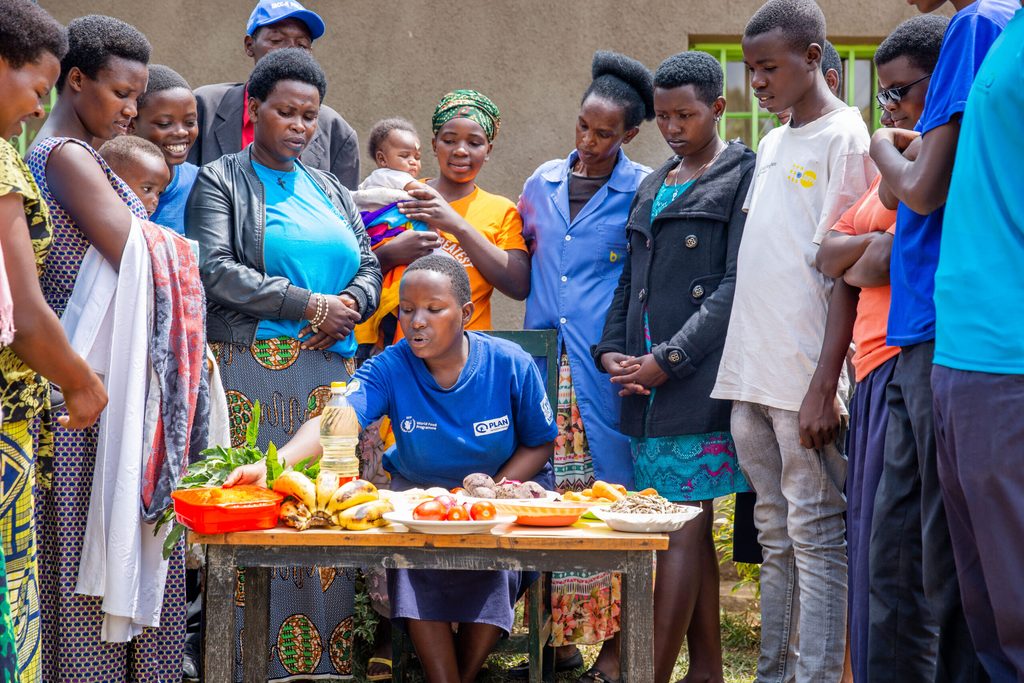
“I am one of the young people trained to prepare balanced diets to combat stunting. We carry out this activity within families, both inside and outside the refugee camps,” Alice shared.
Cooking up change: A shield against stunting in families
Held once every 3 months, the community cooking demonstration primarily aims to continually empower community members, especially young mothers, with the skills needed to foster healthy communities.
“My colleagues and I train both breastfeeding and non-breastfeeding mothers on how to prepare balanced diets, aiming to build families and communities free from stunting.”
Alice, 17
“My colleagues and I train both breastfeeding and non-breastfeeding mothers on how to prepare balanced diets, aiming to build families and communities free from stunting,” Alice explained.
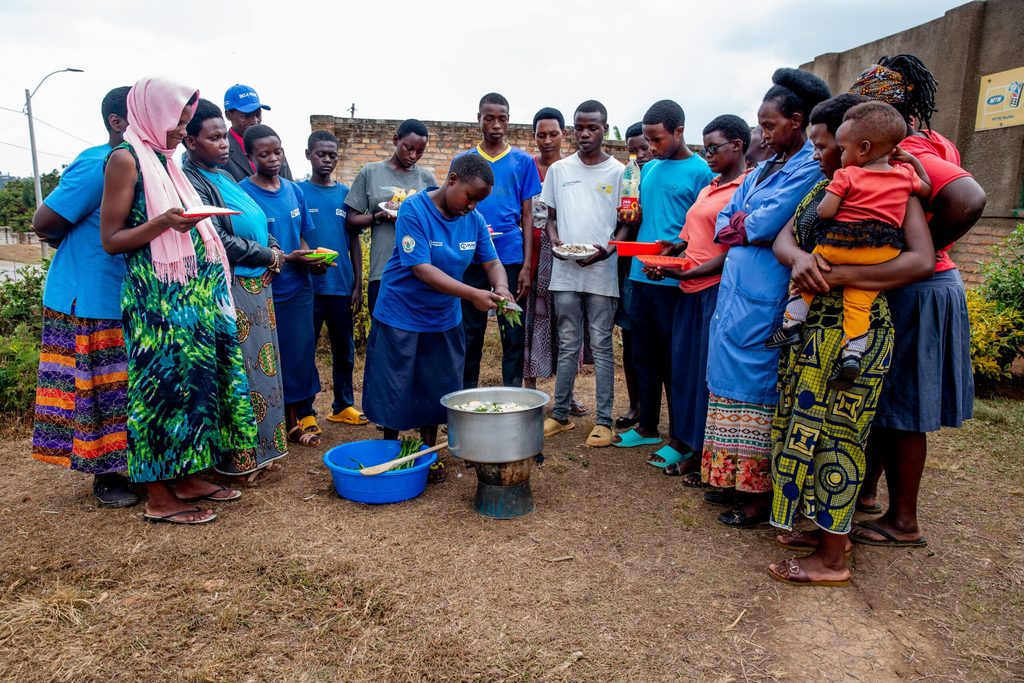
Beyond providing cooking training, Alice takes responsibility for the diets within her own family.
“I am the nutrition champion, starting within my own family. Every day, I ensure that my parents and siblings are consuming healthy meals,” Alice added.
With the support of nutrition mentors, Alice has received nutrition coaching to hone her skills as a future nutrition champion.
Transforming mothers through nutrition knowledge
Solange, a 27-year-old refugee mother of 3, spoke about the positive changes she has experienced in preparing balanced meals for her family. Before participating in the cooking demonstration in her refugee community, she had little awareness of the importance of a balanced diet.
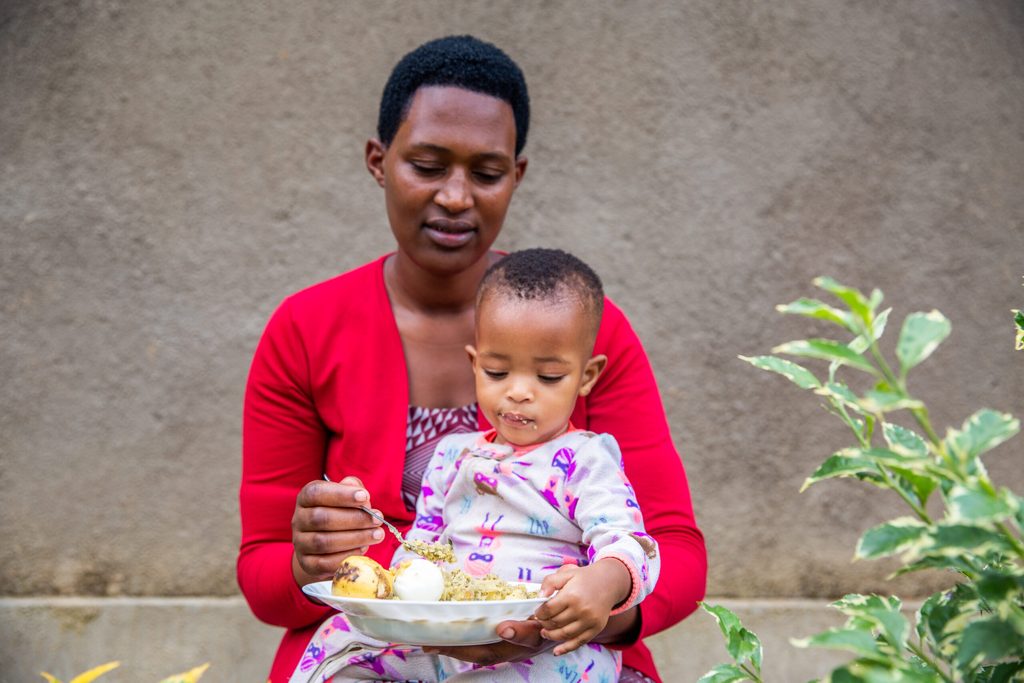
“I never used to care much about what my family was eating. To me, food was just food, and that was it. I was one of the parents who didn’t know how to prepare balanced diets, but I have learnt how to do it now. I prepare a balanced diet for my children and family. Today, there we have no more stunting.”
Solange, 27
“I never used to care much about what my family was eating. To me, food was just food, and that was it. I was one of the parents who didn’t know how to prepare balanced diets, but I have learnt how to do it now. I prepare a balanced diet for my children and family. Today, there we have no more stunting,” Solange explains.
Solange believes the community cooking demonstration initiative should be extended to more local communities.
“By spreading knowledge on how to cook balanced meals, we can significantly improve the understanding of many parents who have a poor grasp of what it truly means for their children’s future,” Solange urged.
Marie, a 35-year-old health worker and nutrition mentor, reiterated the importance of consistent nutrition education.
“Consistent nutrition education is crucial for society to ensure that parents help their children eat nutritious foods, starting from the early stages of development,” Marie emphasised.
About the cooking demonstration initiative
Community cooking demonstrations mainly take place in family homes and Community-Based Early Childhood Development Centres under the Social Behaviour Change and Communication – Nutrition Project implemented by Plan International Rwanda and the World Food Programme in Rwanda across 5 refugee camps, including Kiziba, Mugombwa, Kigeme, Nyabiheke, and Mahama, and their host communities.
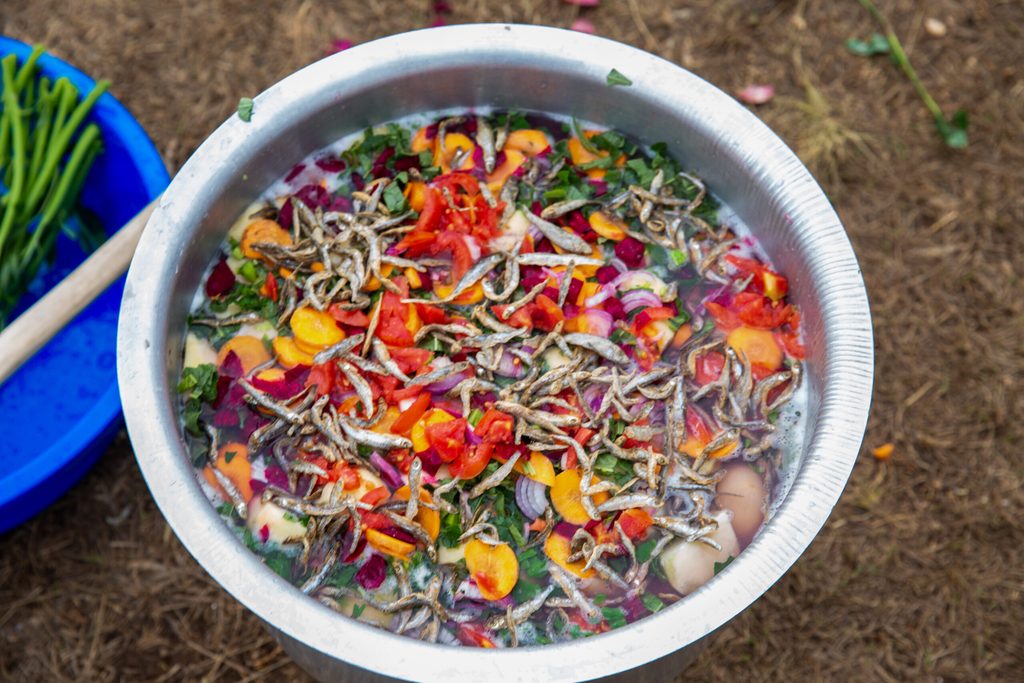
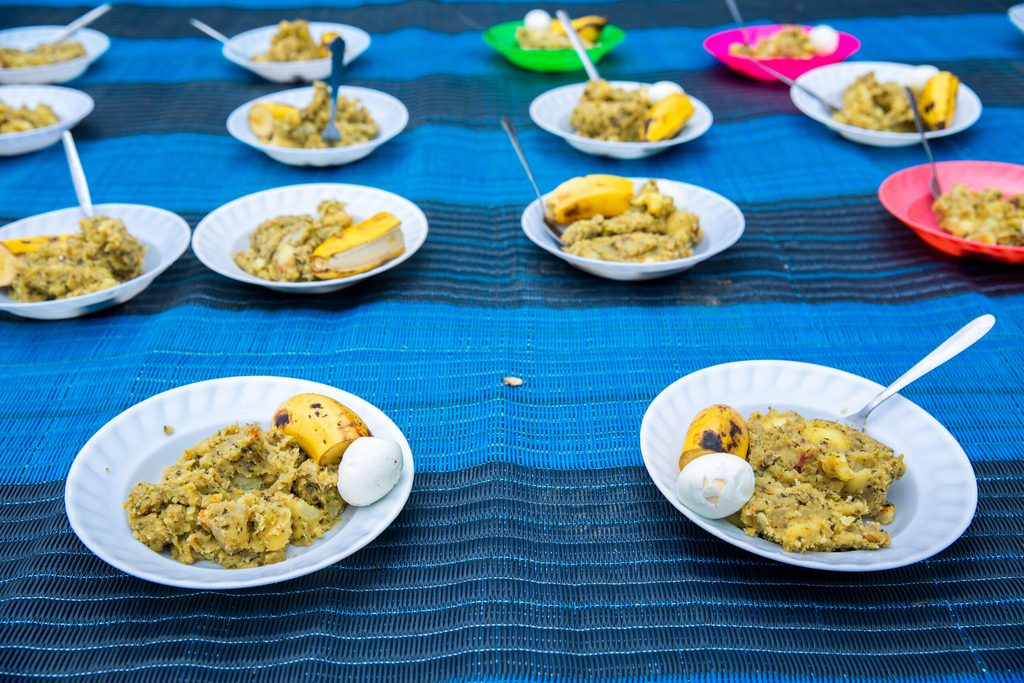
This initiative is an effective way to enhance the ability and confidence of community members, especially young mothers, in preparing healthy meals in their families. Moreover, it also encourages men to participate in cooking and feeding young children, promoting greater male engagement in household activities.
To date, 50 cooking demonstration sessions have been held in each refugee camp, reaching 2,500 participants, 60 per cent of whom are women. In the host communities, 17 sessions have been conducted, reaching 850 participants, with 50 per cent being women.
These sessions are led by nutrition mentors, community health works, and graduates from Maternal, Infant, and Young Child Nutrition classes. They mobilise community members, especially families with malnourished children, families in conflict, child-headed households, teenage mothers, pregnant and lactating mothers, and their partners, to attend cooking demonstrations and learn.



